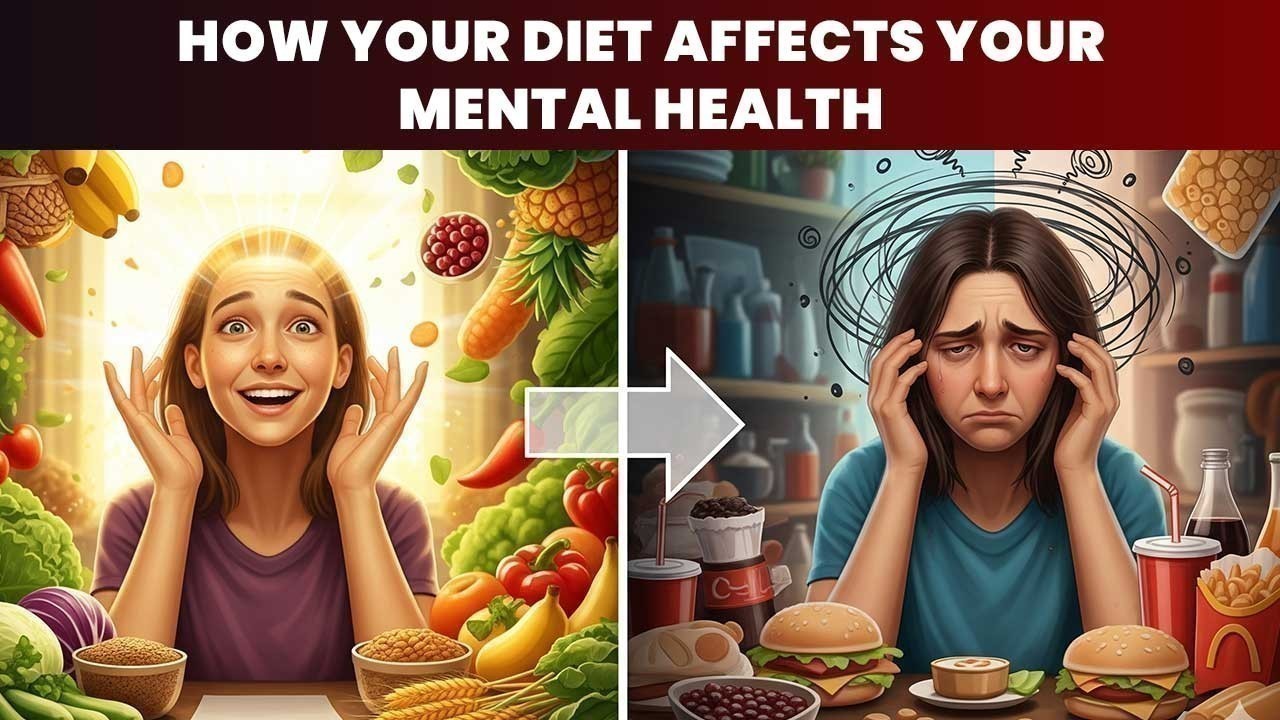
Post by : Soumya Jit
Eating healthy often feels like an expensive lifestyle choice. Organic produce, supplements, and fancy diets can give the impression that health is only for those with deep pockets. But the truth is, you can eat healthy on a budget if you know the right hacks. With a little planning, smart shopping, and simple cooking techniques, you can fuel your body with nutritious foods without breaking the bank.
In this guide, we’ll cover affordable food hacks that will help you eat better every day while saving money.
The main reason people associate healthy eating with high costs is because of marketing around organic superfoods and diet-specific products. Items like quinoa, almond flour, protein powders, and pre-packed salads often cost more than regular groceries. However, the reality is that simple, traditional, and locally available foods are often just as nutritious—sometimes more.
One of the best ways to save money and eat healthy is by meal planning.
Write down what you’ll eat for the week.
Make a grocery list and stick to it.
Avoid impulse buying fast food or ready-made meals.
This reduces food waste and keeps you on track.
Seasonal fruits and vegetables are cheaper and more nutritious. Buying from local markets instead of big supermarkets often gives you fresher items at lower prices. For example:
Summer: mangoes, cucumbers, melons.
Winter: carrots, spinach, oranges.
Eating seasonal food also boosts immunity and digestion.
Eating out frequently drains both your wallet and health. Restaurant meals are often high in oil, sugar, and sodium. Cooking at home allows you to control ingredients and save money.
Pro tip: Cook larger portions and refrigerate or freeze for later to avoid ordering food when you’re tired.
You don’t need exotic ingredients to eat healthy. Affordable staples like:
Oats for breakfast.
Rice and lentils (dal) for protein and energy.
Eggs for quick and cheap nutrition.
Seasonal vegetables for fiber and vitamins.
These are inexpensive, filling, and easy to cook.
Items like rice, oats, lentils, beans, and nuts are cheaper when bought in bulk. Store them properly in airtight containers to last longer. Bulk buying cuts down on frequent grocery trips and saves you money in the long run.
If fresh produce is too expensive or spoils quickly, go for frozen fruits and vegetables. They are often just as nutritious, cheaper, and convenient for quick cooking. Frozen berries, peas, and spinach can easily be added to meals.
Chips, cookies, sugary drinks, and instant meals cost a lot and add little nutrition. Instead, replace them with healthier, budget-friendly snacks like:
Roasted chickpeas.
Popcorn.
Fresh fruit.
Homemade smoothies.
Most people spend extra money on unhealthy snacks when hungry. Preparing simple snacks like cut vegetables with hummus, boiled eggs, or fruit salads at home prevents unnecessary spending and keeps you full.
Cooking one-pot meals like khichdi, soups, or stews is cost-effective, saves time, and reduces waste. These meals combine grains, vegetables, and protein in a single dish, giving you a balanced diet at a low cost.
If possible, grow small plants like mint, coriander, spinach, or tomatoes at home. They’re easy to grow in pots and save money while ensuring chemical-free freshness.
Soft drinks, bottled juices, and energy drinks are costly and unhealthy. Replace them with plain water, lemon water, or homemade buttermilk. Staying hydrated also reduces unnecessary food cravings.
Don’t throw away food. Leftovers can be turned into new meals:
Leftover rice → fried rice.
Extra vegetables → soup or paratha stuffing.
Stale bread → breadcrumbs or bread upma.
This reduces waste and saves money.
Before buying groceries, compare prices at supermarkets, local vendors, and online stores. Many times, local shops offer fresher items at better prices than big brands.
Meat is usually more expensive than plant-based protein sources like beans, lentils, tofu, and chickpeas. Try meatless meals a few times a week to cut costs and improve health.
Cooking larger portions at once saves energy, time, and money. For example, cook a big pot of lentils or curry and use it for multiple meals throughout the week.
Eating healthy doesn’t have to be expensive. By planning meals, focusing on affordable staples, and making smart shopping choices, you can enjoy a nutritious diet on a budget. Remember, simple home-cooked meals and seasonal foods are not just cost-effective—they’re healthier too.
Q1. Can I eat healthy if I only buy cheap foods?
Yes, many cheap foods like rice, lentils, eggs, oats, and seasonal vegetables are highly nutritious and form the base of a healthy diet.
Q2. Are frozen vegetables as healthy as fresh ones?
Yes, frozen vegetables are often flash-frozen at peak freshness, retaining most of their nutrients.
Q3. How can I save money while eating out?
Choose simple dishes, avoid drinks and desserts, and try to limit eating out to special occasions.
Q4. Is it better to buy organic foods?
Not always. Seasonal and local produce is often just as healthy and much cheaper than organic products.
Q5. What is the cheapest way to get protein?
Affordable protein sources include lentils, chickpeas, beans, eggs, peanuts, and soy products.

Shahid Afridi Praises Rahul Gandhi, Criticises BJP on Pakistan TV
Shahid Afridi praises Rahul Gandhi for promoting dialogue and criticises BJP for using religion in p

Jolly LLB 3 Akshay Kumar & Arshad Warsi Return in Legal Comedy Hit
Jolly LLB 3 brings Akshay Kumar & Arshad Warsi together in a fun thrilling courtroom comedy explori

Jenna Ortega Stuns at 2025 Emmys with Bold Red Carpet Look
The 77th Emmy Awards 2025 celebrated record wins, stunning fashion, and activism, making it a night

UAE Ministry of Defence Launches “Ready” Leadership Programme
UAE Defence Ministry launches “Ready” programme to train future leaders and enhance military efficie

EU AI Act Faces Pause Call Amid Industry and Policy Debate
Former Italian PM Draghi urges pause on EU AI Act, citing risks and innovation concerns, amid indust

Sharjah Council Approves Data Guide and Reviews Housing Projects
Sharjah Executive Council discusses government performance, approves data sharing guide, and reviews

Beyond the Field How Fitness Tech is Transforming Sports Performance
Explore how fitness technology like wearables AI and VR is improving athlete performance safety

The Mind Gut Connection How Your Diet Shapes Your Mood and Mental Health
Discover how your diet affects mental health mood and stress Learn tips to keep your gut and mind

Dubai s 2025 Property Outlook Key Trends Prices and Investment Opportunities
Discover Dubai s 2025 property trends price changes rental yields and investment opportunities in

Like Trees Let Us Live to Give A Lesson in Purposeful Living
Discover life lessons from trees on giving purpose and serving others in every season inspiring a

From Street Style to High Fashion How Modest Fashion is Evolving in the UAE
Explore how modest fashion in the UAE evolved from traditional wear to stylish street and high fashi

Spotlight on Emerging Emirati Designers Shaping Dubai s Global Fashion Scene
Discover how emerging Emirati designers blend tradition modernity and sustainability to redefine D

Mastering Power Dressing Your Complete Guide to Dubai s Business Style
Learn how to master power dressing in Dubai s business world with tips on colors fit accessories

The Rise of Sustainable Fashion in the UAE Eco Friendly Trends Shaping 2025
Explore how sustainable fashion is transforming the UAE with eco friendly trends innovative designs

The Hottest Fashion Trends of 2025 Bold Colors Sustainable Styles & Dubai Street Fashion
Explore 2025 fashion trends in Dubai bold colors sustainable styles oversized outfits vintage lo